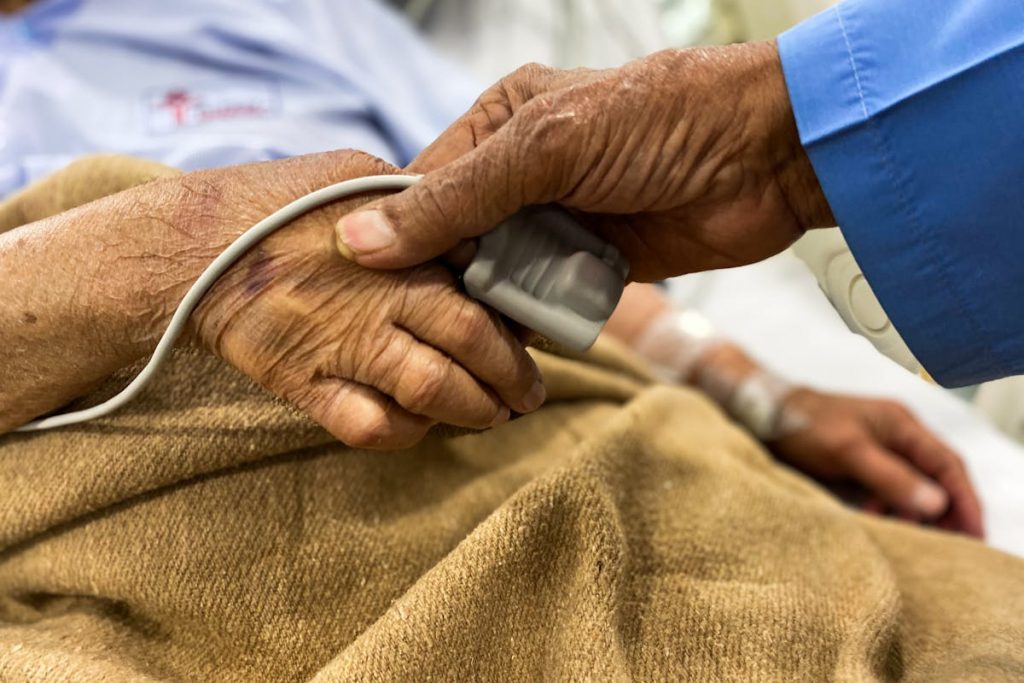- Effective communication between families and healthcare providers is crucial for holistic end-of-life care, improving patient satisfaction and aligning care with patient wishes.
- Family involvement in end-of-life care can present emotional, physical, and decision-making challenges, necessitating supportive resources to aid family participation.
- Access to counselling and respite care mitigates stress for families, enabling them to provide compassionate support while maintaining their well-being.
- Best practices include clear communication, resource provision, and fostering a partnership of mutual respect between families and healthcare professionals.
End-of-life care is a profound and delicate process involving the individual facing life’s final chapter, their family, and healthcare providers. Family members’ involvement in this stage of care is not just beneficial; it’s essential for providing holistic support that honors dignity, wishes, and emotional well-being.
Understanding End-of-Life Care
End-of-life care encompasses a broad range of services and support for individuals who are nearing the end of their life. It’s a critical aspect of healthcare that focuses on ensuring comfort, dignity, and quality of life during one’s final days, weeks, or months. This care is not solely about managing physical symptoms but also about providing emotional and spiritual support to patients and their families.
Understanding the various components of end-of-life care, including advance care planning, palliative care, and hospice care, is essential for anyone navigating this challenging time. It involves a compassionate and holistic approach to treating terminally ill patients, aimed at easing pain and addressing psychological and spiritual needs, emphasizing the importance of dignity in the process.

The Principles of End-of-Life Care
End-of-life care pertains to the support and medical care given during death. This care focuses on physical comfort and addresses psychological, social, and spiritual needs, ensuring a respectful and dignified closure of life’s final chapter. A holistic approach recognizes the individual, considering their life experiences, values, and wishes.
Roles and Responsibilities in End-of-Life Care
Healthcare professionals, including doctors, nurses, and hospice staff, play crucial roles in management and support during end-of-life care. They work collaboratively to ensure pain and symptoms are managed effectively and the patient’s comfort is prioritized.
However, the family’s role extends beyond decision-making and support. Families provide invaluable emotional comfort that healthcare providers alone cannot offer. Being present, holding a hand, sharing memories, and simply offering a loving presence can significantly impact a patient’s emotional state and quality of life.
Hospice Care: A Key Component
Hospice care stands as a critical component in the array of end-of-life care choices, dedicated to alleviating pain and symptoms for patients facing chronic, terminal, or severe illnesses. It underscores the importance of peace, dignity, and comfort in the final stages of life. Hospice care offers a support system to help the family cope with the patient’s illness and grief, thus embodying the essence of family involvement in end-of-life care.
The Benefits of Family Involvement
The involvement of family in the final days of a loved one’s life holds immense therapeutic value for both the patient and the family members. It creates a supportive environment that can ease the emotional burdens of facing mortality and provides a foundation for navigating the complexities of grief and loss.
The presence of family can transform the clinical setting into a space of intimacy and warmth, reinforcing the patient’s sense of belonging and love. Family involvement is a beacon of light, offering emotional sustenance and practical support through the challenging terrain of end-of-life care.
Enhancing Patient Comfort and Peace
The presence of family can drastically augment the emotional landscape of an individual nearing the end of life. The familiar voices, stories, and comforting words significantly ease patient distress and promote peace.
Supporting the Emotional Well-being of Family Members
The end-of-life process is not only challenging for the patient but also for the family. Being involved in care decisions, spending time with their loved one, and participating in care can give family members a sense of purpose and solace, aiding in their emotional coping and bereavement process.
Improving Communication with Healthcare Providers
Family members often advocate for their loved ones, ensuring their wishes are respected and communicated effectively to healthcare providers. This open line of communication enhances care quality and ensures alignment with the patient’s end-of-life desires.
Challenges and Solutions in Family Involvement
Involvement in end-of-life care comes with its challenges, including emotional stress, physical exhaustion, and navigating complex healthcare decisions. Access to supportive resources, counselling, and respite care can mitigate these challenges, enabling families to maintain their well-being while providing love and support to their loved ones.

Best Practices for Encouraging Family Involvement
Creating a welcoming and supportive environment for families involves:
- Clear communication.
- Offering resources and guidance.
- Fostering a partnership based on mutual respect and collaboration between healthcare providers and families.
Educating families about what to expect and how they can contribute to their loved one’s care empowers them to participate meaningfully in this important phase of life.
Conclusion
Family involvement in end-of-life care represents a fundamental aspect of holistic patient care. It benefits the patient and enables family members to contribute to a well-rounded care experience, facilitating emotional closure and personal growth. By fostering open communication, providing support and resources, and honoring families’ invaluable role, we can ensure that the final chapter of life is approached with dignity, respect, and love.
